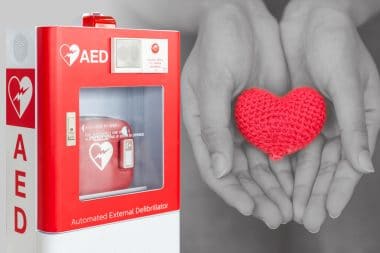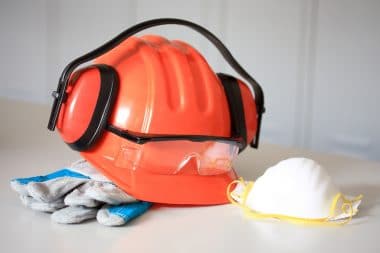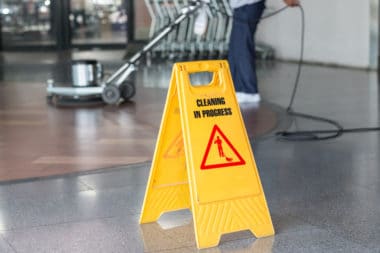If you’re like most people, you probably take certain steps to stay safe and healthy. Maybe you make certain to buckle your seatbelt before driving or use a surge protector for electrical devices. Simple acts like these ensure safety and help prevent accidents. Perhaps you’ve gone a step further by implementing an emergency plan in case a sudden catastrophe happens at home. If you already have a plan in place to assist you when things go awry, you might want to think about updating your emergency plan to include a personal emergency response system.
What Is a Personal Emergency Response System?
Also known as a medical alert system, a personal response emergency system (or PERS), is a technological device that allows the user to instantly alert first responders if there is an emergency. There are a variety of different emergency systems, and these in-depth PERS reviews on Health.com can help you determine the type and features right for you.
How Does it Work?
An at-home PERS consists of a base station and a transmitter. The base station or console is plugged into an electrical outlet for power and a phone jack for communication ability. Some units can be set up with cellular service if a landline is unavailable. The transmitter is embedded in a button that should be worn by the user. When the button is pressed, a radio signal is sent to the base station which then contacts emergency first responders such as ambulances, police, or fire departments.
Modern technology has made improvements on these devices to where now they can be wearable and may be taken wherever the user wishes instead of being home-bound. These wearable PERS devices use cellular technology and work much like a mobile phone. Upon pressing the button on a mobile PERS, emergency responders can locate the user via GPS equipped in the device.
Who Should Have a Personal Emergency Response System?
According to the Health.com review mentioned earlier, a medical alert system is ideal for seniors or older adults who live alone and are at high risk of falling. However, these life-saving devices aren’t just for the elderly. People with medical conditions that threaten mobility such as diabetes or Parkinson’s disease can greatly benefit from a PERS. Furthermore, an emergency alert system can be invaluable to people who have dementia, Alzheimer’s, heart disease, and/or suffer from occasional loss of consciousness, dizziness, or seizures.
While these devices can be a godsend for the elderly, and people with serious medical conditions who live alone, a PERS isn’t limited to this demographic. A personal emergency response system can be a vital asset to anyone who is concerned about their safety or wellbeing and wants instant access to emergency first responders.
Examples and Reasons Personal Medical Alert Systems Improve Health and Safety
Home Invasions: Whether you live alone or not, a PERS might be a smart solution to be prepared in case of a burglary, theft, or robbery. According to the US Department of Justice, 38% of home invasions lead to physical assault and over 60% result in rape. A PERS can instantly alert police, potentially preventing these life-threatening situations.
Fire, Flood, and Natural Disasters: No matter what your age or living situation, if you’re stuck in the midst of a house fire, flood, or weather emergency, a PERS could save your life. This is especially true if you find yourself without power, transportation, or help available nearby. A press of a button can notify an emergency response team and provide fast assistance.
Parents: Parents can greatly benefit from a PERS, especially new parents with infants or with many children. Babies and kids are unpredictable, and they can sustain illness or injury without a second’s notice. Concerned parents are starting to utilize PERS for speedy medical action in case of emergencies.
Personal Protection: People who work in unsafe environments often opt to wear a PERS. This is particularly true of women who work alone. For example, workers in the real estate industry find themselves in potentially dangerous situations and up to 6% of realtors have reported being a victim of a violent crime while on the job. PERS devices are also valuable for college students, teachers or anyone who finds themselves alone and in need of an extra layer of protection.
Adventurers: Rock climbers, extreme hikers, and trail-blazers are starting to utilize wearable PERS devices to reach out for help when in remote locations. Even when a cellular signal isn’t available, a GPS-equipped PERS can ping a signal out to the nearest emergency team in case an adventure goes wrong.
Fall and Accident Detection in Seniors: As cited by Health.com’s insightful PERS review, 1 out of four seniors will fall in the home each year, and 1 out of 5 of these incidents could be potentially fatal. Falls in the home are one of the most common reasons for elderly injury and even fatality. A personal emergency response system can be crucial in saving lives, especially if the device is equipped with fall detection capability.
Living Alone: Regardless of age or health condition, having a PERS handy is a good idea if you live alone. All of the aforementioned scenarios can be better managed if you have an extra level of protection. According to the National Safety Council, over 53% of accidents happen in the home, and a PERS lends personal protection in the event the unexpected happens while living alone.
Medical Conditions: We’ve already discussed how people with critical health issues are perfect candidates for PERS and medical alert systems. However, it bears mentioning again because the likelihood for survival or recovery is directly contingent upon how fast you can get medical attention. A PERS can mean the difference between hours versus minutes to receive life-saving treatment.
Deciding if a Personal Emergency Response System is Right for You
Only you can make the call as to whether or not you should have a PERS. However, we hope these reasons for having a personal emergency response system may offer you solid guidance in making your decision. Furthermore, the Health.com PERS review will help you navigate through the different types of emergency and medical alert systems so you’re fully prepared to make an educated choice about the future of your health and safety.








Reply